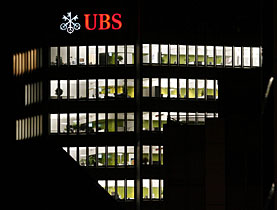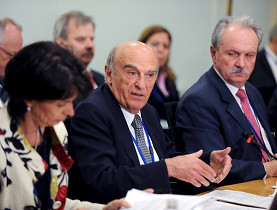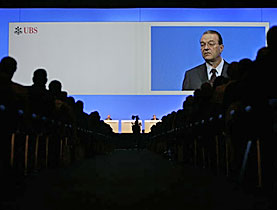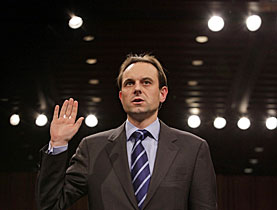Bern calls for halt to US case against UBS

The Swiss government and UBS have urged a Miami court to reject demands from United States tax authorities for details of 52,000 Americans suspected of evading taxes.
The authorities in Bern and the country’s largest bank say disclosure would violate Switzerland’s sovereignty and international law.
The reaction from the Swiss capital came in a 60-page federal court filing in Florida where the US Internal Revenue Service has demanded the identities of the suspects, who – according to the IRS – have about $14.8 billion (SFr16.8 billion) in UBS accounts.
In its brief to the court, the Swiss government emphasised that the US civil proceeding against UBS was contrary to the current tax treaty between Switzerland and the US.
“Switzerland’s law prohibit the release of confidential information to foreign governments when the request has not been made through authorised intergovernmental channels,” the government said in its filing.
Coercive powers?
“If the court were to order UBS to produce evidence from Switzerland, and backed that order with coercive powers, the court would be substituting its own authority for that of the competent Swiss authorities, and therefore would violate Swiss sovereignty and international law,” it said.
A government statement from Bern noted: “no other state would hand over data on that scale and in that way”.
Echoing a similar filing earlier on Thursday from UBS, it said Swiss law also specifically prohibited release of the information demanded by the IRS.
UBS acknowledged in February that it helped US clients hide assets from the IRS. It agreed to pay a $780 million fine and has since identified about 320 of its American clients.
In its legal battle, the IRS is using a legal tool known as a John Doe summons, which allows it to investigate tax fraud by individuals whose identities are unknown because of Swiss banking secrecy.
UBS spokeswoman Karina Byrne said the IRS summons would require the bank and its staff to violate several provisions of Swiss criminal law, adding that it was “incompatible” with the tax treaty between the two countries.
Specific standards
This, she explained in a statement, provided specific standards for government-to-government exchanges of information on tax matters.
“UBS maintains that it has already sought in good faith to comply with the summons without violating Swiss law,” she added.
Switzerland last weekend asked the US to drop the case against UBS in return for a new tax accord with Washington.
A first round of negotiations on the revised agreement took place in Bern from Tuesday to Thursday.
In its statement to the court, the Swiss government said it had already warned the American State Department that the threatened enforcement of the summons against UBS could cause the failure of the talks.
Federal District Court Judge Alan Gold in Miami will determine whether the summons should be enforced.
Observers believe the case could set an important precedent because UBS is the first foreign bank to be served with a John Doe summons.
swissinfo with agencies
On May 14, 2008, former UBS employee Bradley Birkenfeld and a Liechtenstein businessman were charged by the US authorities with helping an American billionaire avoid paying taxes on $200 million of assets deposited in Swiss and Liechtenstein bank accounts.
Birkenfeld turned whistleblower, giving details of UBS private banking practices to US prosecutors.
In July, a Miami court authorised the Internal Revenue Service to issue a summons on UBS demanding the release of confidential information on clients the agency suspected of tax evasion.
In the same month, UBS told a congressional hearing that it would stop offshore banking activities for US clients.
UBS agreed to pay $780 million and name some United States clients to resolve criminal fraud charges against it.
The deal is to settle the claim that UBS helped wealthy American clients evade taxes. It could expose some UBS customers to US Internal Revenue Service scrutiny and law enforcement action.
However, US authorities want details of 52,000 UBS clients suspected of avoiding paying taxes to the IRS.

In compliance with the JTI standards
More: SWI swissinfo.ch certified by the Journalism Trust Initiative












You can find an overview of ongoing debates with our journalists here . Please join us!
If you want to start a conversation about a topic raised in this article or want to report factual errors, email us at english@swissinfo.ch.